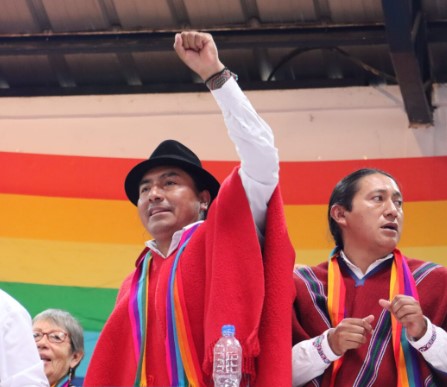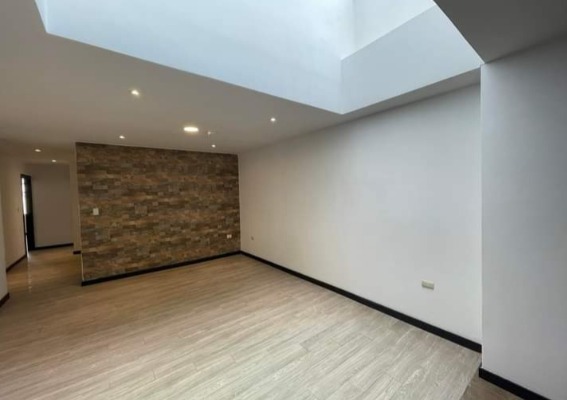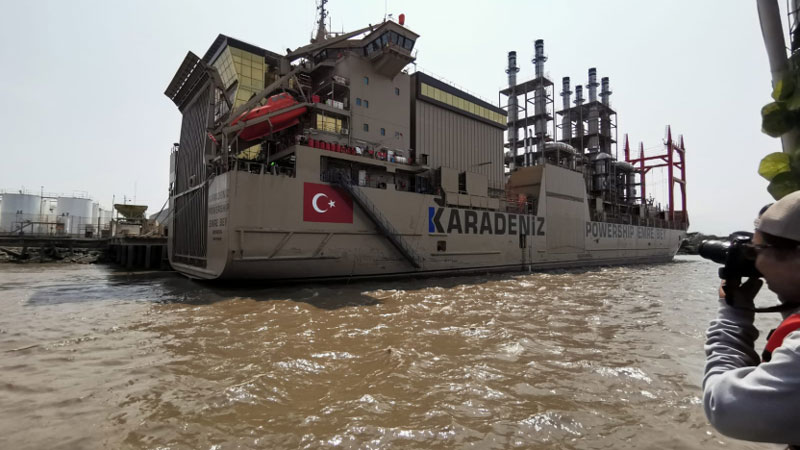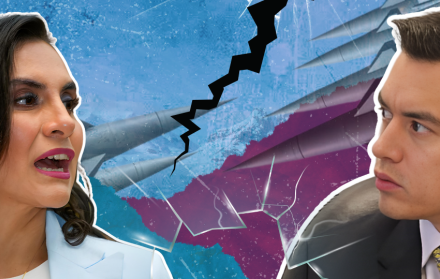Political experts and indigenous leaders explain why last week’s anti-government protests failed
Deputy Government Minister Esteban Torres admitted Sunday that there was a sigh of relief in the government following the July 4 anti-government protests aimed at the elimination of gasoline subsidies. “We did not expect the protests to progress to the level of 2019 and 2022, but we knew this was a possibility,” he said in a Radio Pichincha interview.

Conaie President Leonidas Iza
In a series of weekend radio and television news programs, political commentators agreed with Torres about the sense of relief following last week’s under-sized protests.
“Yes, this is good news for President Noboa’s government — one of very few bright moments for him recently — but the timing was simply not good for a mass mobilization,” said political science professor Francis Cordero. “The indigenous and union leaders have not changed their approach of opposing government policies relating to subsidies, but memories of the last national strikes and the fact we are approach an election decreased enthusiasm for new action.”
He added: “The fact that Conaie and the transport unions decided not to join the protests meant they would be one-day affairs but this was the result of political calculation.”
For Conaie and the indigenous movement in general, Cordero said that Leonidas Iza’s presidential candidacy was a factor in not joining protests. “Iza is a smart guy and he knows a strike to shut down the country would not be a good move,” said Cordero. “He read the polls from the last mobilizations and knows that 70% to 80% of people opposed them. He claimed he supported a new mobilization but was relieved, I am sure, when the Conaie membership opposed it.”
According to Cordero, Iza and other government opposition movements will focus on the poor economy in February’s election and want to avoid any actions they could be blamed for, for making it worse.
Former National Assemblyman Omar Jordán agrees and says the political and social climate of 2024 is much different from three or four years ago. “The country is suffering an economic crisis and any effort to exacerbate it would not be welcome,” he says. “[Former President Guillermo] Lasso increased gasoline prices almost a dollar before the strike forced him to abandon more increases and this diluted the shock of Noboa’s plan. There could be more resistance if the government pursues its plan to reduce diesel subsidies, but I doubt we will hear anything more about this until after the election.”
In an Ecuavisa interview, former Conaie council member Fausto Anecacao said his movement’s decision not to mount a nationwide strike does not mean it agrees with the government. “We oppose the new gasoline prices and almost all the other neo-liberal programs that this government is putting forward, but we must be sensible in our actions and reactions,” he said. “We are well aware that the last two strikes hurt the indigenous people and campesinos as much as the government and this made us reevaluate our future plans.”
Anecacao also acknowledged the strikes attracted “unwanted elements” that damaged Conaie’s reputation. “The way we express our opposition must be a clear statement of the indigenous people and the general population,” he said. “Having thugs and hoodlums commit violent acts is not the message we want to present.”
















